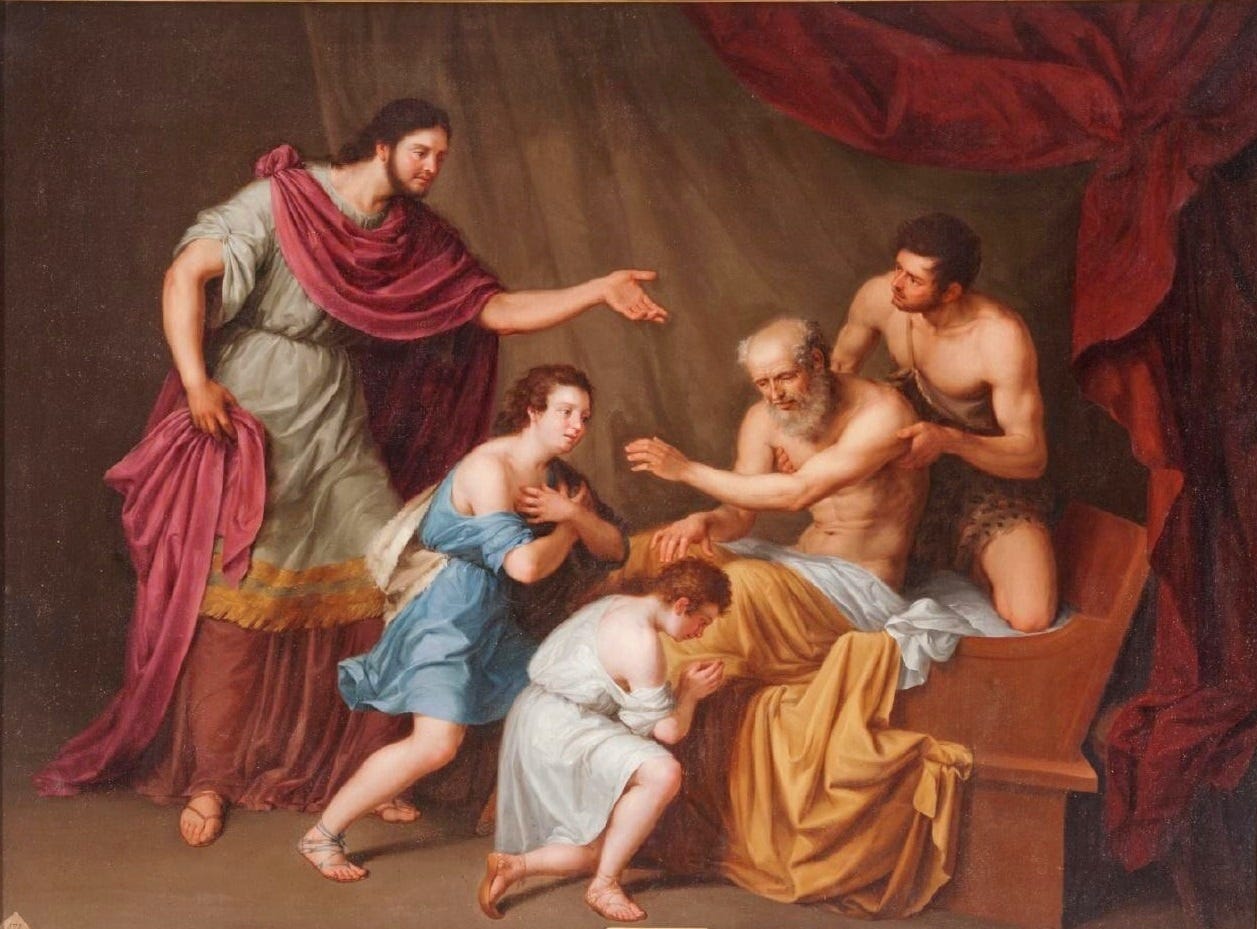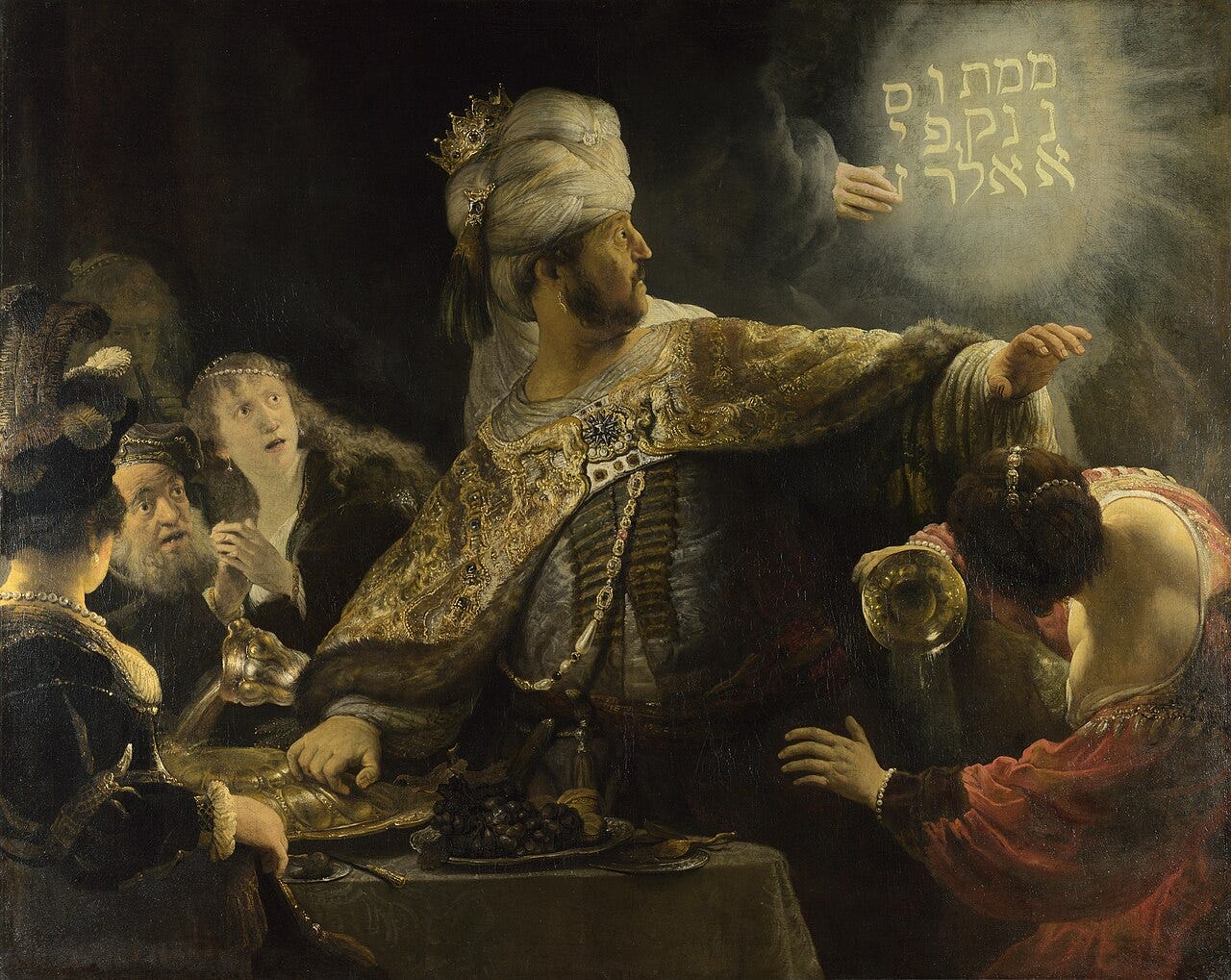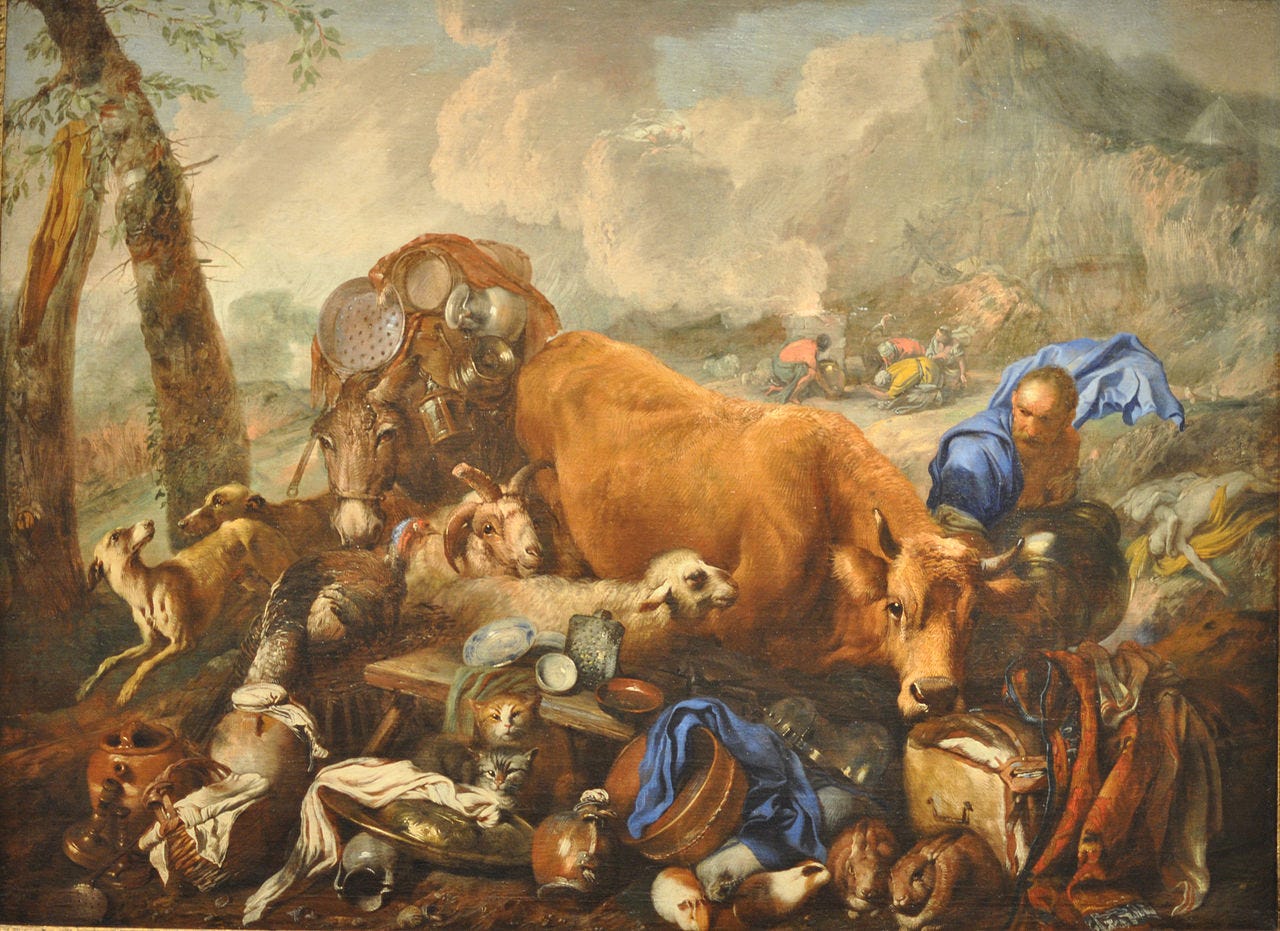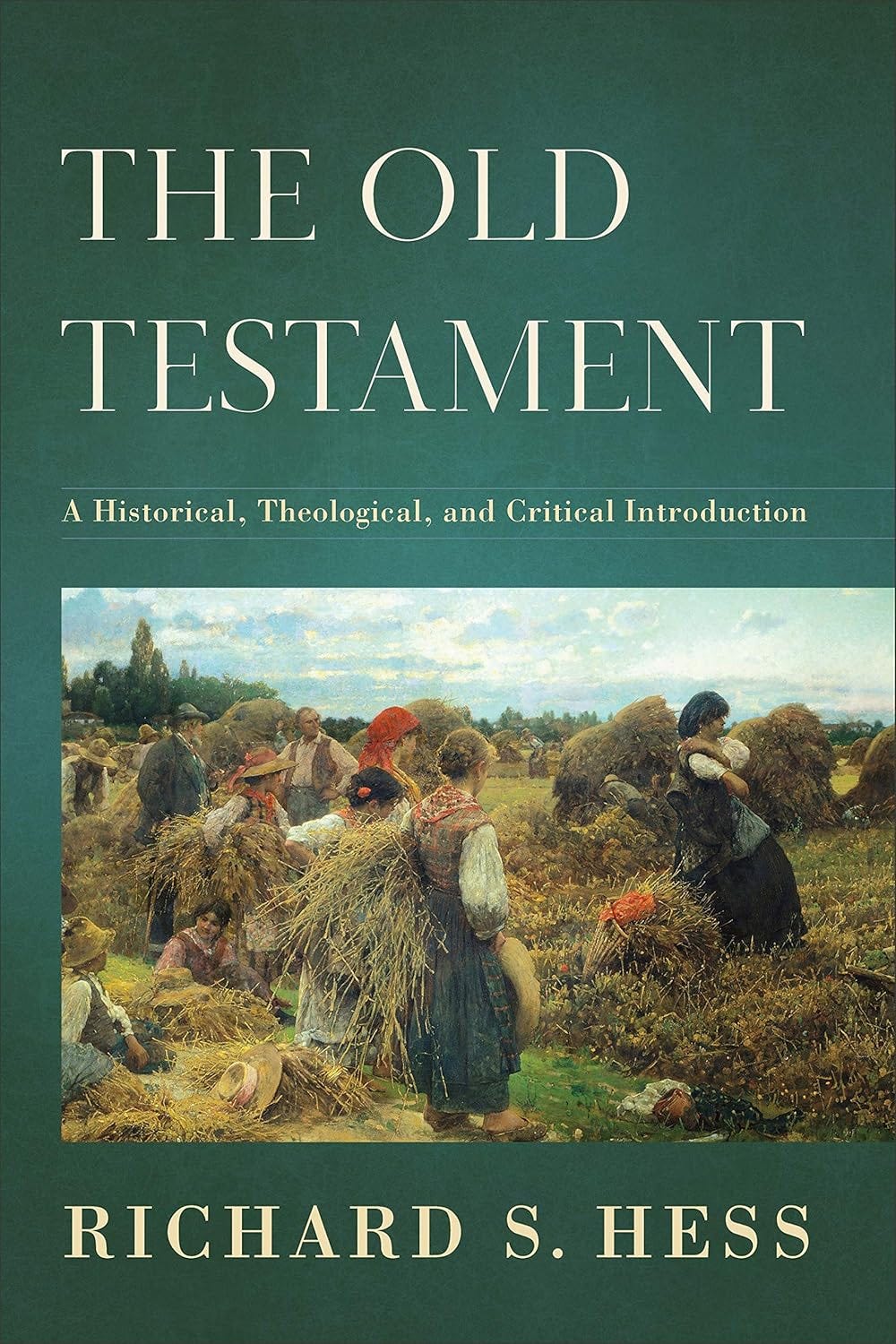Why the Old Testament Still Unsettles Critics and Outlasts Doubt
When Ancient Memory Refuses to Die
Some stories do not survive history by accident. They survive because they refuse to lie.
That line matters because the Old Testament did not survive by luck or superstition. It survived because a community chose memory over comfort and truth over convenience. Imagine a people dragged into exile, mocked by empires, watching temples fall and kingdoms die. Yet they still carried these stories as if they were heavier than stone tablets and worth more than the cities they lost. Critics later tried to turn those memories into folklore, as if faith made them foolish. But the real question is not whether ancient people believed too easily. It is whether we, with all our pride and modern tools, believe too little. At some point you have to decide whether those writers were naïve dreamers, or witnesses who understood reality in a way we barely recognize anymore.
Ancient historians were not fools. They understood power, danger, and propaganda. They carved victories in stone because they knew memory could be erased. They feared forgetting and it is that fear that built nations and sanctified stories.
Now imagine the Hebrew scribes in that same world. Every empire around them boasted gods who spoke, kings who triumphed, and cities the heavens supposedly favored. Yet the Hebrews recorded their failures alongside their triumphs. Their kings sin. Their leaders doubt. Their prophets fall apart in private before they stand bold in public. That alone tells you these stories were not designed to flatter power.
Critics once laughed at names in Scripture. They said Belshazzar never existed. Then archaeologists pulled clay cylinders from the earth confirming him, sealing a scholar’s doubts in the dust beneath his shoes. The past has a habit of rising from the soil like a witness called back to the stand.
That is the first lesson: when history sleeps, it does not forget. Evidence arrives late, but it arrives.
The second lesson is simpler. We judge ancient writing with modern arrogance. We assume memory grows sharper as centuries pass. In reality, clarity does not always live in the newest books. Sometimes it lives in the oldest wounds.
Ancient scribes believed God speaks into time. So, they wrote history as if heaven was a participant, not a silent spectator. When God tells Moses to lead, or warns kings through prophets, or judges nations, modern readers sometimes flinch. Yet they forget Assyrian kings also claimed divine command. Babylonian tablets speak the same language of heavens shaping earth. Faith was not a filter. It was reality to them. To strip that away is to impose our imagination over theirs.
The real question is not whether the Old Testament is religious. Of course it is. The deeper question is whether sacred writers could also be faithful reporters. They could. They often were.
Sometimes the Bible gives us people at their worst. A king who worships idols for decades. A hero who falls to temptation. A prophet who runs from his mission. If propaganda wrote these pages, propaganda forgot its job.
These stories risked making Israel look weak. They admitted flaws and failures. That alone should disarm anyone claiming they were crafted only to glorify.
Contrast that with kings in Mesopotamia who never lost a battle on paper. They never doubted. They never sinned. They never bled. Their enemies always deserved destruction. Their cities always shined. Their gods always agreed with them.
Israel’s records do not read like that. They read like memory under oath.
Ancient historians made choices. They selected moments that mattered. They focused on meaning. They told stories that shaped identity. That does not make them unreliable. It makes them human. It makes them purposeful.
Some scholars argue biblical writers bent events to fit a religious agenda. Yet they ignore the fact that every civilization wrote with bias. Every empire tinted history with pride. Bias does not mean fiction. It means perspective.

When the Chronicler tells us Manasseh was humbled by captivity, some assume fiction because Kings does not mention it. But silence is not evidence. Empires deported rebellious rulers all the time. History does not collapse because one scroll is quieter than another. The ancient world lost records faster than we lose passwords.
Something else worth noting. When archaeologists doubted an avenue of stones in a British field, they laughed at the eighteenth century man who swore he had seen it. Then the earth proved him right centuries later.
Humility is a useful tool when digging through the past.
The Old Testament tells stories not only to inform, but to transform. This is where the second attached article helps us see the craft behind the narrative. Hebrew storytellers mastered brevity, character, and tension. They used dialogue to reveal hearts, not speeches to impress minds.
They knew memory needed emotion. A mother holding her dying child on her knees. A shepherd boy standing before a giant. A foreign widow clinging to her mother-in-law in grief and loyalty. These moments were not dressed in ornament. They were told plainly. Plain language gives truth less room to hide.
You can almost hear the philosophy behind it: if a truth is real, it can walk in daylight without stage lights.
Ancient Hebrew storytelling lived by that rule. The writers did not paint scenery in detail. They painted hearts. They trusted the reader to feel the wind blowing in the space between words.
They spared adjectives. They sharpened dialogue. They let silence speak.
Stories worked because people recognized themselves. Pride. Betrayal. Fear. Hope. Jealousy. Forgiveness. These are not mythic emotions. They are human ones.

Some stories center action. David walking into battle with nothing but conviction and a sling is not mythic exaggeration. It is a universal dare: courage is not measured in armor.
Others center character. Joseph forgiving brothers who sold him is not polished legend. It is moral gravity. It asks you who you would become if given power over those who hurt you.
Others center setting. A flood unmaking the world reawakens the fear every civilization has carried: creation can slip into chaos if human corruption runs unchecked. The narrator does not waste time describing clouds. He describes consequences.
Every story carries God, sometimes in sight, sometimes not. The divine presence does not flatten the narrative. It deepens the stakes. Life does not move alone.
And here is something we forget. These stories were not written for professors. They were written for families. For firesides. For children who needed memory shaped before cynicism arrived.
Children understand justice, loyalty, courage, and mercy before they learn footnotes. That is why the Bible begins with narrative, not argument. It knows truth lands first in the heart.
You can read the Hebrew Bible as literature. You can read it as history. You can read it as theology. If you do all three together, something remarkable happens. You see a people recording who they believed God was by recording who they knew themselves to be.
And in that tension between heaven and earth, honesty survives.
The older world did not separate sacred from real. They believed the sacred made the real real. To us that may feel foreign. To them it was sanity.
Which leads to a final thought. The danger today is not taking ancient texts too seriously. The danger is assuming ancient writers had nothing serious to say. Our age confuses novelty with wisdom. Theirs knew wisdom has roots deeper than time’s erosion.
History is not a courtroom where only modern minds testify. It is a long table. Every century takes a seat.
The Old Testament sits near the head of that table not because it invented morality, but because it preserved memory with moral intent. Truth here does not hide behind poetic smoke. It stands on trial in every generation and keeps being acquitted by time.
So, when you read these pages, do not ask first, did this happen exactly as told? Ask, why did this survive? Stories that endure do so because reality recognizes itself in them.
Maybe the real power of these ancient narratives is not simply that they record the past. It is that they refuse to let the past be indifferent. They hold humanity responsible. They insist the world has meaning. They insist choices matter. They insist memory must carry conscience.
And that might be why they still breathe when so many other ancient voices sleep in the dust.
History honors what refuses to die. These stories do not die because they still demand something from us. Faith saw history not as coincidence but as conversation between God and humanity. Whether you share that belief or not, you can respect the audacity of writing history with the expectation that eternity listens.
Maybe that is why critics return again and again. Not to bury these texts, but to wrestle with them. Wrestling is not the posture of dismissal. It is the posture of seriousness.
In the end, you face a choice. You can treat these narratives like relics of a naive world. Or you can treat them like windows into a world that understood more about truth and memory than we give it credit for. Either way, they stand. They endure.
The past is not silent. Sometimes it waits for us to catch up.
And perhaps that is the true provocation of these ancient pages. They do not simply ask whether we believe them. They ask whether we are willing to be as honest about our time as they were about theirs.
We are now on Instagram ...









Well argued and written. The Bible is a book that should be read and re-read ti children time and again so as to ensure that people never forget its lessons.
The old testament helped forge France, Germany, Italy and all other nations of Europe for a reason.
This piece struck me deeply.
The idea that truth does not endure because it is perfect, but because it is honest, feels like something we often forget. We live in a time that prizes polished certainty, fast conclusions, and flawless images. Here instead we meet a much older and more human way of remembering: not as monument, but as responsibility.
What moved me most is the reminder that what survives is not what shines, but what refuses to lie, even when it reveals weakness, failure, and wound. It is a call to simplicity, to transparency, to not being afraid of seeing the human as it really is.
Perhaps that is why some stories never stop breathing: they recognize us long before we recognize them.
Thank you for this thoughtful and generous reflection.